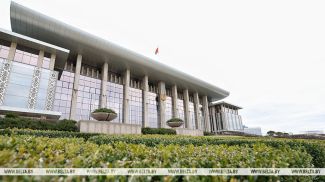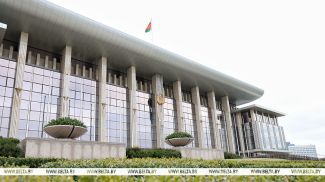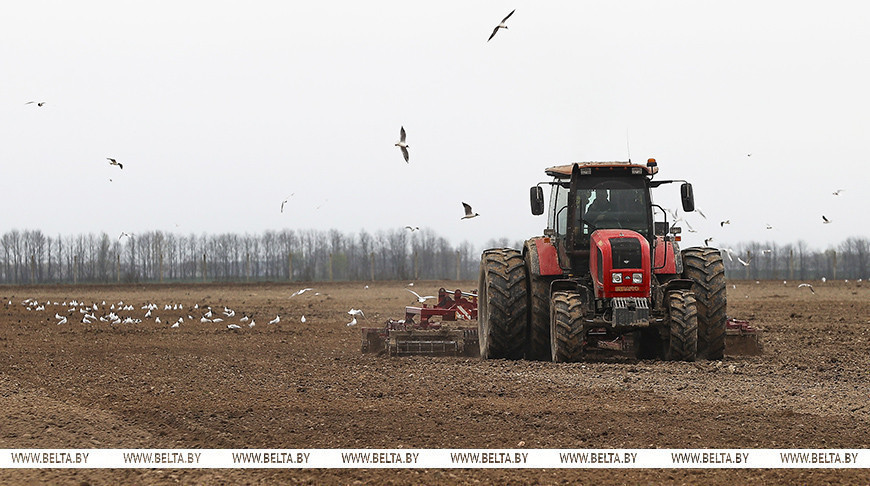
MINSK, 16 April (BelTA) – Belarusian President Aleksandr Lukashenko outlined problems in Belarus’ crop production at a meeting to discuss rural development and efficiency of the agricultural sector, BelTA has learned.
According to the head of state, last year’s performance was almost a failure: the results were worse than in 2022. Agricultural workers under-harvested over 1 million tonnes of grain, 63,000 tonnes of vegetables and 10,000 tonnes of flax fiber. Almost every third agricultural enterprise had the grain yield below 20 centners per hectare. “
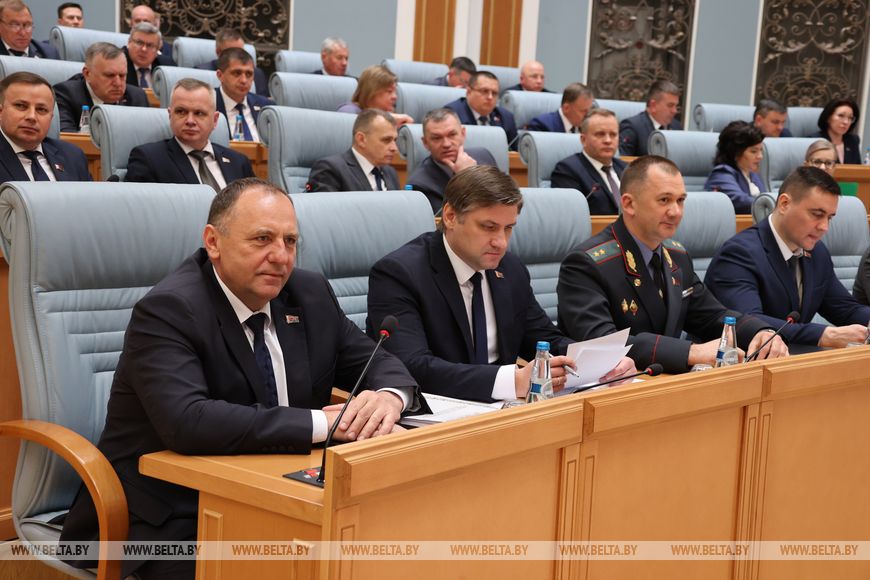
“The government traditionally blames unfavorable weather conditions. Governors double down on this. However, we must admit that the weather was not the only thing to blame,” Aleksandr Lukashenko noted.
Crop rotation
Firstly, a number of regions do not observe region-specific crop rotation guidelines that were developed by scientists and tested by practitioners. Up to 30-40% of grain crops (especially winter crops) are sown in violation of crop rotation rules.
According to the president, over the past 10 years, the area under wheat has increased by a quarter, but almost half of this area is unfit for cultivating this crop. This problem is especially relevant in Gomel Oblast, Mogilev Oblast and Vitebsk Oblast. “At the same time, experts have calculated that the annual grain losses from such agronomic practices amount to at least 450,000-500,000 tonnes. I have repeatedly given instructions to expand the land under protein crops to fully meet the needs of livestock farming and substitute imports. By the way, the enterprises that did this had no problems with feed. But so far, only a little more than half of the 252,000 hectares recommended by science are planted with leguminous crops,” the head of state said.
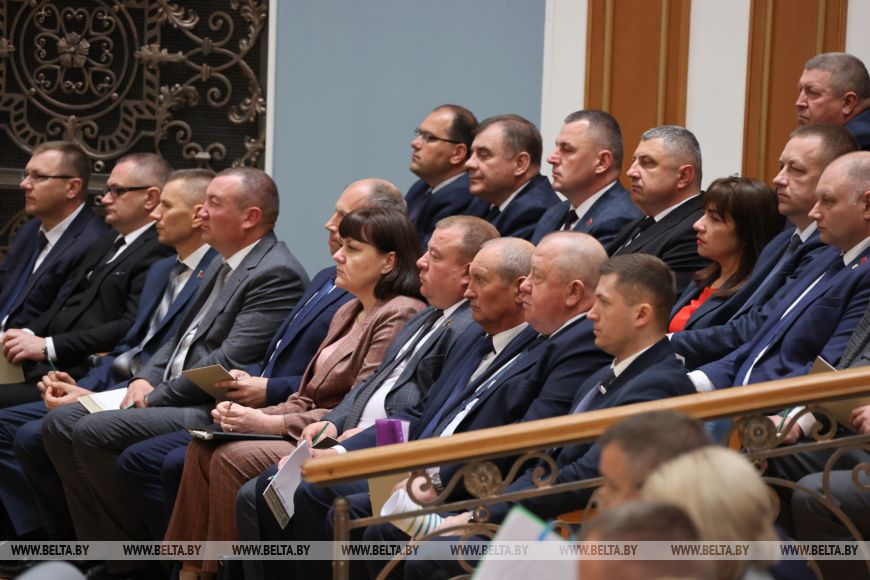
The use of fertilizers
Secondly, the amount of mineral fertilizers used on the fields has reduced. Not all measures are applied to protect agricultural crops.
Aleksandr Lukashenko cited a report by the State Control Committee. Last year, the Valevachi company from Cherven District sowed a mixture of spring barley and oats on a field near the village of Krasnaya Niva (40 hectares) without applying phosphorus fertilizers. The field was also littered by stones and household waste. A significant part of the seeds were simply not embedded in the soil.
“Such mismanagement led to poor harvests, inadequate amount of feed for livestock, a drop in soil fertility and other problems,” the president noted.
According to the head of state, last year’s performance was almost a failure: the results were worse than in 2022. Agricultural workers under-harvested over 1 million tonnes of grain, 63,000 tonnes of vegetables and 10,000 tonnes of flax fiber. Almost every third agricultural enterprise had the grain yield below 20 centners per hectare. “

“The government traditionally blames unfavorable weather conditions. Governors double down on this. However, we must admit that the weather was not the only thing to blame,” Aleksandr Lukashenko noted.
Crop rotation
Firstly, a number of regions do not observe region-specific crop rotation guidelines that were developed by scientists and tested by practitioners. Up to 30-40% of grain crops (especially winter crops) are sown in violation of crop rotation rules.
According to the president, over the past 10 years, the area under wheat has increased by a quarter, but almost half of this area is unfit for cultivating this crop. This problem is especially relevant in Gomel Oblast, Mogilev Oblast and Vitebsk Oblast. “At the same time, experts have calculated that the annual grain losses from such agronomic practices amount to at least 450,000-500,000 tonnes. I have repeatedly given instructions to expand the land under protein crops to fully meet the needs of livestock farming and substitute imports. By the way, the enterprises that did this had no problems with feed. But so far, only a little more than half of the 252,000 hectares recommended by science are planted with leguminous crops,” the head of state said.

The use of fertilizers
Secondly, the amount of mineral fertilizers used on the fields has reduced. Not all measures are applied to protect agricultural crops.
Aleksandr Lukashenko cited a report by the State Control Committee. Last year, the Valevachi company from Cherven District sowed a mixture of spring barley and oats on a field near the village of Krasnaya Niva (40 hectares) without applying phosphorus fertilizers. The field was also littered by stones and household waste. A significant part of the seeds were simply not embedded in the soil.
“Such mismanagement led to poor harvests, inadequate amount of feed for livestock, a drop in soil fertility and other problems,” the president noted.
According to the head of state, some regions have failed to accumulate sufficient amounts of fertilizers for the spring planting campaign. The "leader" here is Vitebsk Oblast.
"In this situation, you can maintain a balance of nutrients (especially in terms of phosphorus and potassium) only by increasing the volume of application of complex fertilizers (NPK). Today, this is the global best practice. Such technologies are being used more and more widely in the Russian Federation and leading European countries. Countries pay a lot to import these fertilizers, and not everyone can afford their production. But for us, it is a domestic mineral resource. We can meet our domestic needs many times over," Aleksandr Lukashenko said.
He noted that there will always be skeptics who will question the financial side of the issue. However, to apply simple fertilizers you need to apply them and use fam machines three times a season. Thus machines depreciate faster; expenses on fuels and lubricants triples and labor has to be diverted from elsewhere.
"The government, together with the National Academy of Sciences of Belarus, regional executive committees should develop comprehensive approaches taking into account the need and expediency of using such fertilizers," the head of state instructed.
Land reclamation
Land reclamation is still carried out poorly, Aleksandr Lukashenko noted. Systems are not properly maintained, and canals are ploughed and put out of use.
"We annually refer to various adverse weather: low temperatures, droughts. We spend a lot of money to restore reclamation systems and maintain reclaimed fields," the president said.
According to him, three regions - Grodno, Minsk and Mogilev – failed to fulfill the 2023 plans for the reconstruction of reclamation systems. Moreover, facts have been established when reclaimed lands are not used. In some places, the volume and cost of reclamation work are overestimated. "The state allocates money, and you grow grass and shrubs on fertile reclaimed lands," Aleksandr Lukashenko remarked critically.
"I have named only three reasons that lie on the surface. What kind of super-yields and future fodder base for livestock can we expect with such approaches? You need to be able to work in any weather. After all, we all know what the weather is like in Belarus. We adapt to that. At least those who want to work have already adapted to this," the head of state said.




